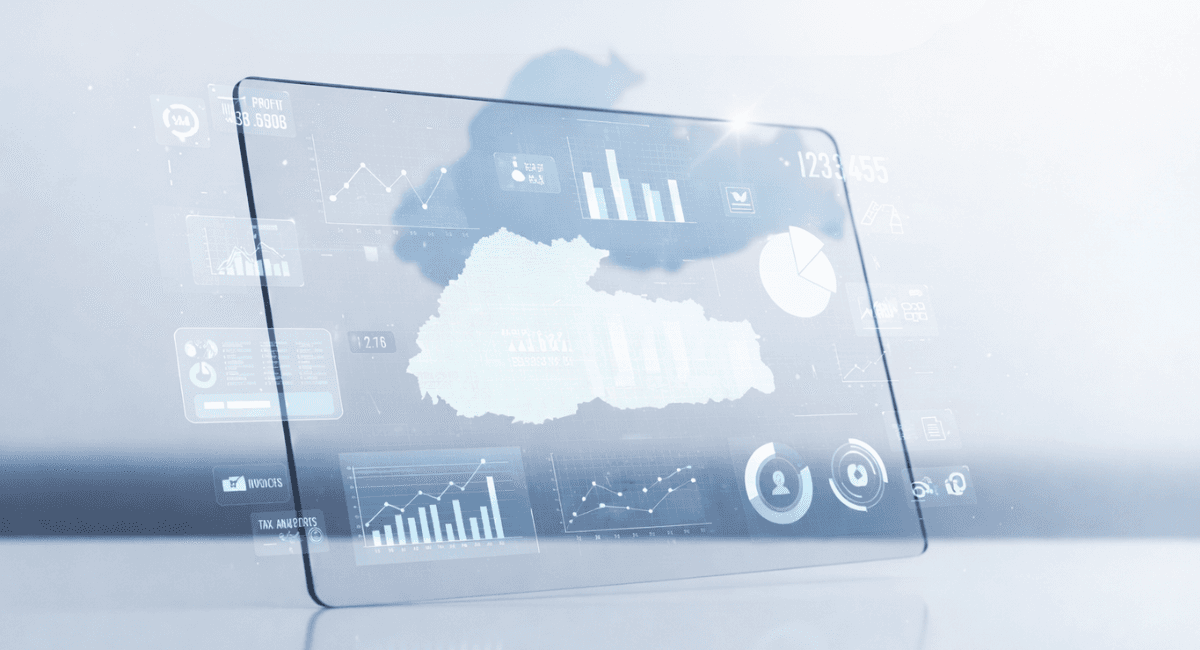
CIBIL score plays a crucial role every time you apply for a loan—whether it's a home loan, personal loan, or even a credit card—as lenders heavily depend on it. This three-digit number will help you prove your creditworthiness and become an important tool for your financial journey. Starting from the loan application to the interest rate, everything can go wrong due to the CIBIL score. This blog walks you through what a CIBIL score is, how it is calculated, and how one can boost it for better financial opportunities.
What is CIBIL score?
CIBIL (Credit Information Bureau) Limited is one of the largest credit information companies in India and gives you a complete credit history of an individual and his business credentials. Your credit score, commonly known as your CIBIL score, makes you worthy or unworthy of credit; it comes in handy while requesting loans or credit cards.
Your CIBIL score essentially reflects your credit behavior. It ranges between 300 and 900, and the better score indicates a good credit profile. Above all, it assists lenders in deciding whether you can be entrusted to repay your loans or service your credit card responsibly.
1. Good and Bad CIBIL Scores
Very good (750 - 900): Get satisfactory loan approval at reasonable interest rates.
Good (700 - 749): Decent chances for sanction with usual interest rates.
Average (600 - 699): More checks; lenders may reject or quote a higher interest rate
Poor (300 - 599): Very poor chances for loan/credit card sanctioning.
2. Benefits of a good CIBIL Score and drawbacks of a poor CIBIL Score
A good score in CIBIL makes loan applications smoother and more likely to get approved. Having a good score also puts you in a position to obtain reduced rates of interest on your personal and home loans, making it even cheaper to borrow. Moreover, the good score also makes it eligible for higher credit limits and premium credit cards that open you up for so much financial freedom.
On the other hand, a poor score poses severe limitations. You would find it challenging to draw loans or bank credit, and when drawn, that is usually at a higher rate of interest. Further, a not-so-desirable score diminishes opportunities for new lines of credit or other financial services. Hence, it can inhibit financial growth.
3. Why Does Your CIBIL Score Matter?
Loan Sanction: CIBIL score is the most important variable in deciding both loan approvals and rejections by banks and finance companies. Generally, a good score fetches quicker processing and higher chances of loan approvals.
Better Interest Rates: A high CIBIL score will help you gain better interest rates on loans. Whichever interest rate may concern you, like a personal loan or home loan interest rate, you will be preferred when the credit score is excellent because it shows low risks in the books of your lenders.
Qualification for Credit Cards: Credit card issuers also check whether you can have a premium card or a higher credit limit using your CIBIL score.
EMI Calculation: Lenders calculate your credit score while calculating your EMI. A good CIBIL score allows you to get a low rate of interest; thus, the EMIs of your personal loan, home loan, or any other credit will be lower.
4**. How is the CIBIL Score Calculated and What Factors Influence It?**
[caption id="attachment_17317" align="aligncenter" width="709"] Pie chart illustrating key factors influencing your CIBIL Score[/caption]
Your score for CIBIL is based on various factors. And knowing them would be beneficial in getting maximum and maintaining a good score. Let's understand how:
Payment History (35%): Timely payment of your loan EMIs and credit card bills is very important. Missed payments have an adverse impact on your score.
Credit Utilization Ratio (30%): The usage of credit must always be kept below 30% of the total available limit.
Length of Credit History (15%): The longer your credit history, the better it portrays on your score.
Credit Mix and Type (10%): A good mix of secured loans such as a home loan and unsecured loans such as a personal loan reflects good credit management.
New Credit Inquiries (10%): Applications of multiple loans or credit cards within a short period can significantly reduce your score simply because of too many inquiries.
5. How Can I Improve My CIBIL Score?
Feeling anxious about your score is not exactly where you need it to be? Well, there's a practical way to help you in improving it:
Pay all bills on time: Your late payments will hurt your score, so consider linking payments to your bank account if necessary.
Maintain Credit Utilization Low: Track to have your usage below 30%. Over that, you also apply for a credit limit enhancement to boost the usage ratio.
Diversified Credit: The secured kinds like home loans and the unsecured nature of personal loans with a good mix reflect a better scenario on the report.
Limit New Credit Applications: Apply for fewer loans and credit cards at the same time as it may indicate the lender's stress.
Verify Error: Check your credit report on a regular basis for any errors that may harm your score.
6. Let's Know How To Get Your CIBIL Report for FREE:
Any individual with a credit history in India is eligible to get a free CIBIL report once a year.
Step 1: Go to the CIBIL website- https://www.cibil.com/. Click on 'Get Your Free CIBIL Score'.
Step 2: Register/Login: You can either log in by entering your personal details or create an account.
**Step 3:**Verify your Identity: Based on your credit history, a few questions will be answered to verify your identity.
Step 4: View Your Score: After verification, you get to view your free CIBIL score and credit report.
7. Credit Bureaus in India
CIBIL is not the only credit bureau in India. There are three other credit bureaus in India. The other three are:
Experian: This is the other major credit bureau, which reflects your credit tale.
CRIF High Mark: It is a credit bureau that has humongous coverage as well as heavy data analytics.
Equifax: Global leader in the sphere of credit information and analytics.
8. Are CIBIL Score and Credit Score the same?
No. Though the terms CIBIL score and credit score are used in tandem with each other quite extensively in India, a CIBIL score actually is the score given out by TransUnion CIBIL whereas a credit score is a general term that can be the score emanating from any of the credit bureaus such as Experian, Equifax, or CRIF High Mark.
Conclusion
Your CIBIL score is the key to financial credibility. It improves the chances of sanctioning loans and credits, credit cards, and good interest rates. Knowing how your score works and being ahead in order to keep it good can be a very strong base for an excellent financial future.
Want to put a hold on your financial future? Check out hisabkitab.co, which comes equipped with tools such as EMI calculators and loan comparison guides and provides the finest resources with regard to CIBIL scores. All this knowledge makes a better financial decision all the more lucrative and a coveted loan offer even more accessible!
Continue Reading




